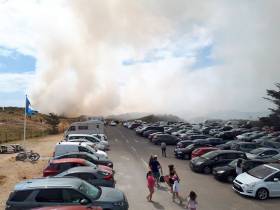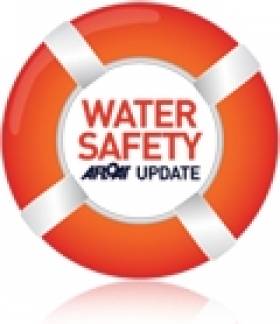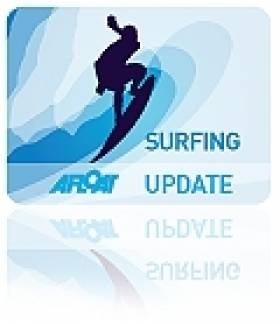Displaying items by tag: Curracloe
Fire At Curracloe Beach Brought Under Control
#Fire - A number of fire brigade units worked together to bring a blaze in the dunes at Curracloe beach in Co Wexford earlier today, Sunday 22 July.
According to TheJournal.ie, the flames were at some points reaching 10 feet high as the fire broke out amid dry vegetation close to the beach, which was hosting hundreds of people for a Leinster Open Sea swimming race.
The Tracie Lawlor Memorial Swim was abandoned as the beach was evacuated for safety, and no injuries have been reported.
TheJournal.ie has more on the story HERE.
Man Dies In Quad Bike Accident On Wexford Beach
#Wexford - The Wexford People reports on the death of a man in his early 50s after a quad bike accident on Ballinesker Beach in Curracloe yesterday afternoon (23 December).
The man was reported missing in the afternoon and found on the beach late in the evening with fatal injuries, with a post-mortem scheduled to take place today.
Irish Coast Guard helicopter Rescue 117, the local coastguard unit, gardaí and other volunteers were involved in the search for the deceased.
Rosslare RNLI Praises Emergency Caller Despite False Alarm
#WaterSafety - Rosslare RNLI has given credit to the quick-thinking member of the public who raised the alarm over what they believed to be a swimmer in difficulty - even though the call-out turned out to be a false alarm.
Lifeboats from Rosslare Harbour and Wexford RNLI were involved in the sea search on Friday evening (19 July) after a swimmer was reported to be in difficulty off Curracloe beach in Co Wexford.
The Irish Coast Guard helicopter Rescue 117 and two local fishing vessels were also involved in the search, which was stood down after an hour and 45 minutes upon coastguard request as no one was reported missing.
Speaking after the call-out, Rosslare RNLI deputy launching authority Dave Maloney said: "The member of the public who raised the alarm this evening deserves credit for doing so."
He added: "We would always encourage the public to alert the emergency services if they see anyone they believe to be in trouble or any signs of danger."
The message is particularly important in a fortnight that has seen a shocking 10 drownings around the island of Ireland - resulting in a big rise in emergency call-outs over the 2012 mid-summer period.
Elsewhere on the same day, the Ballycotton RNLI lifeboat was requested to help search the water off Ballinamona Strand in Ballycotton Bay, Co Cork, for a missing five-year-old girl.
The little girl was playing on the strand when her family lost sight of her. Emergency services were alerted and a search of the area commenced, but thankfully a short while later the little girl was located safe and well.
In other water safety news, the Irish Coast Guard has issued a public appeal for help locating a training mannequin that was lost in Galway Bay during an exercise off Blackhead in North Clare last week.
The Connacht Tribune reports that five coastguard mannequins were placed in the water to acts as people who jumped overboard from a ship fire - but only four were recovered afterwards.
Wexford Gets On The Surfing Map With First Surf School
#Surfing - Wexford now has its first ever dedicated surf school - thanks to two enterprising brothers.
The Wexford People reports on The Surf Shack in Curracloe, established by Chad and Jack-Tim Murray in an effort to put the Sunny South East on the Irish surfing map.
"Everybody knows that there are good waves on the West Coast," says Jack-Tim, referring to popular surf spots like Lahinch, Mullaghmore and Bundoran, "but most people don't even know that surfing exists on Ireland's east coast, let alone in Wexford."
The brothers aim to entice beginners to the sport, highlighting the smaller surf and safe swimming at Curracloe beach as the perfect environment for novices to ride the waves.
The Wexford People has more on the story HERE.
































































